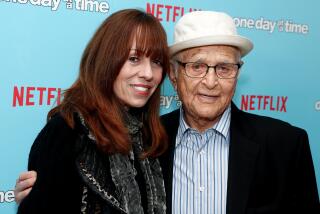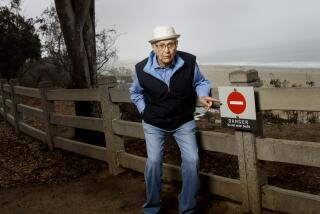Jerris Leonard, 75; Oversaw the Desegregation of Schools Under Nixon
- Share via
Jerris Leonard, an assistant attorney general for civil rights during the Nixon administration and the first administrator of the Law Enforcement Assistance Administration, died of complications of liver cancer July 27 at a hospital in Washington, D.C. He was 75.
As a Justice Department official during President Nixon’s first term, Leonard oversaw the federal government’s efforts to at first delay, and then enforce, court-ordered desegregation of Southern schools.
The Nixon administration tried to slow down the implementation of desegregation orders for 30 Mississippi school districts, but the U.S. Supreme Court issued what newspapers called a “desegregate-at-once” decision. Leonard described it as more of a “psychological” than a legal opinion, adding, “Take the Mississippi situation out, and give me one example where we have not vigorously enforced the civil rights law.”
Jim Turner, a career Justice Department attorney who became Leonard’s deputy, said that once the Supreme Court decision was handed down, a crew went to the South and said school segregation was over. “That’s when major school desegregation happened,” he added.
In 1970, the administration set up biracial state committees to plan and implement school desegregation across the South, overseen by federal attorneys, marshals and the courts.
As assistant attorney general, he led the federal investigation into the 1969 killing by Chicago police of Black Panther leaders Fred Hampton and Mark Clark. He also sued the Teamsters and International Longshoremen’s unions for discrimination against black members, settling the case out of court.
After two high-profile years in the civil rights division, Leonard was appointed to head the Law Enforcement Assistance Administration, which distributed millions in federal money to upgrade local police forces, courts and prisons.
In 1973, he moved into private legal practice and almost immediately was immersed in a controversy over whether he had violated conflict-of-interest rules by representing Florida promoter Glenn Turner in a mailorder fraud case. Acting Atty. Gen. Robert Bork later determined that he had not.
Leonard went on to unsuccessfully represent boxer Muhammad Ali, who said the federal government had unfairly denied him conscientious objector status during the Vietnam War; the Mississippi Legislature, which wanted to institute open primary elections; conservative author Victor Lasky in a libel case against ABC Television; and former Arizona Gov. Evan Mecham for obstruction of justice and misuse of public funds.
Leonard attended Marquette University, graduating from its law school in 1955. Before joining the Nixon administration, he was majority leader of the Wisconsin state Senate.
He is survived by his wife, Mariellen Mathie Leonard of Bethesda, Md.; six children; 15 grandchildren; and four great-grandchildren.
More to Read
Sign up for Essential California
The most important California stories and recommendations in your inbox every morning.
You may occasionally receive promotional content from the Los Angeles Times.










